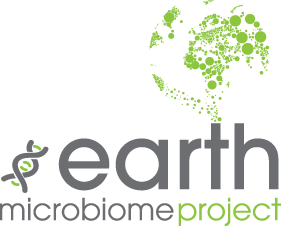Earth Microbiome: macro science for microbes
 Big is not something you would immediately place in the same sentence as microbe. However if your ambition is to catalog all microbes on earth it is probably wise to think very big. That is exactly what the Earth Microbiome Project aims to do in what we can rightly call massively collaborative science. Here’s a brief run down of the project and what we might expect when completed.
Big is not something you would immediately place in the same sentence as microbe. However if your ambition is to catalog all microbes on earth it is probably wise to think very big. That is exactly what the Earth Microbiome Project aims to do in what we can rightly call massively collaborative science. Here’s a brief run down of the project and what we might expect when completed.
Here is their description of the project:
“The Earth Microbiome Project is a proposed massively multidisciplinary effort to analyze microbial communities across the globe. The general premise is to examine microbial communities from their own perspective. Hence we propose to characterize the Earth by environmental parameter space into different biomes and then explore these using samples currently available from researchers across the globe. We will analyze 200,000 samples from these communities using metagenomics, metatranscriptomics and amplicon sequencing to produce a global Gene Atlas describing protein space, environmental metabolic models for each biome, approximately 500,000 reconstructed microbial genomes, a global metabolic model, and a data-analysis portal for visualization of all information.”
You can read more about the project’s ambitions here.
Ok, that is really, really ambitious. The process is fairly straightforward: divide the earth into different ecological areas (biomes; i.e. soil, sea, human, insect, animal, town, city, atmosphere… you name it), find samples from them, extract and sequence the DNA and then use the information to piece together what’s there, microbially speaking. The project actually promises to go much further by looking at what the microbes might be doing too. The scale of this project though is absolutely mind blowing with the amount of data being generated dwarfing any previous microbial ecology project. The guarantee from all this is that we are certainly going to discover new species and strains of microbes and learn a great deal about what they might be doing. The other neat point is that all the data and the tools to analyse it will be available freely on the web. You, me or anyone else can get involved (if you know what you are doing) and get stuck in. This is bound to result in spin off research and most likely spin off technologies that will be relevant to daily life. Quite what, we will have to wait and see.
Looking for something?
Some Questions
What's microbes.me about?
Microbes... and us humans.More specifically...?
Bringing context and meaning to interesting discoveries made about microbes and how they might affect us. Even more specifically, it is about investigating the science of microbiology and explaining what it means and what we should think about with respect to the latest microbial discoveries..Who's behind microbes.me?
Max Bingham. I'm a science writer and this is my channel for going on and on about a topic I think is fascinating. I worked for 10 years as a research scientist studying gut microbes. I have a PhD in gut microbiology. All opinions are mine, except when they're from a guest, and any waffle is just a great idea working itself out.


